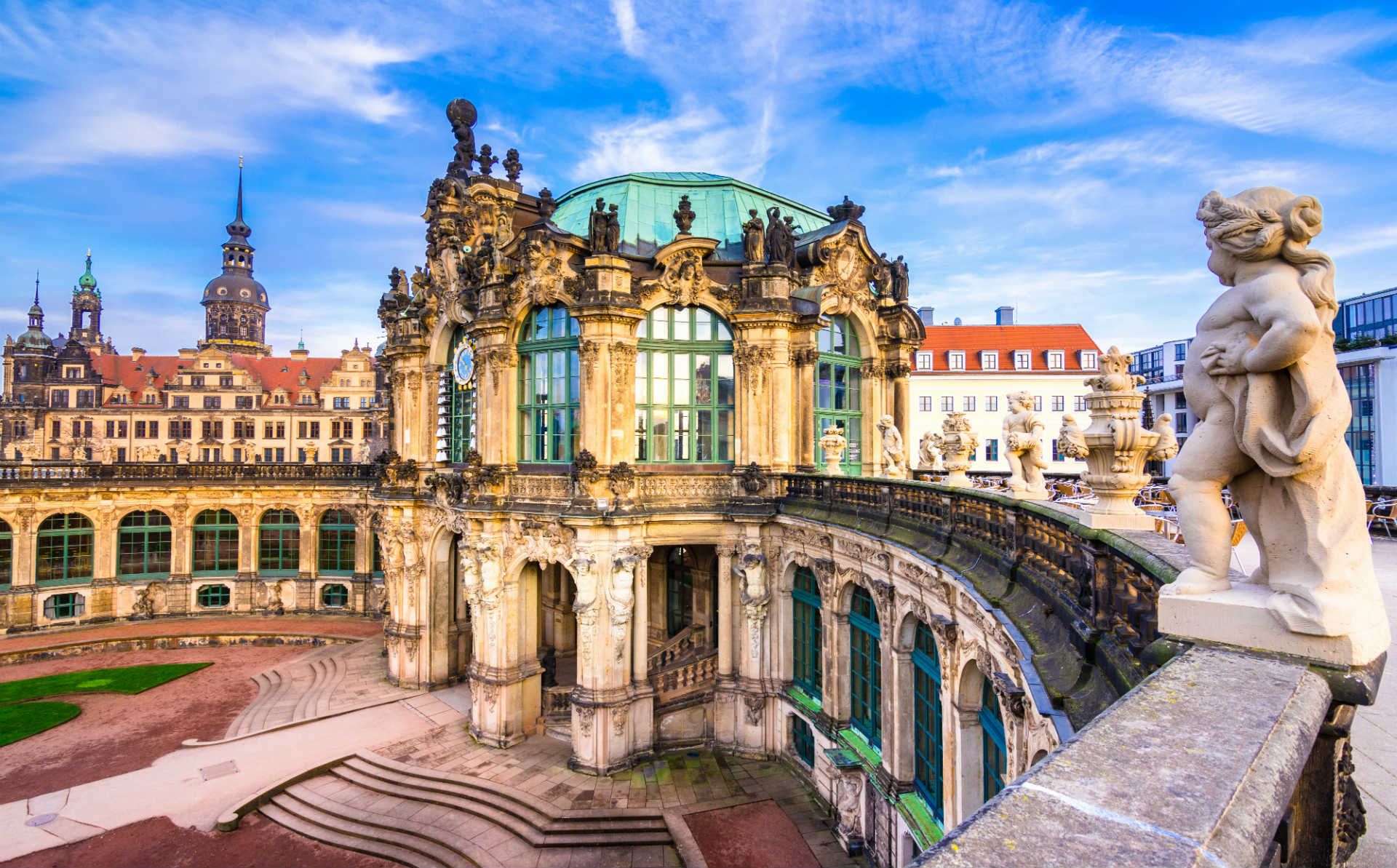Travel advice for Germany
From travel safety to visa requirements, discover the best tips for visiting Germany
Plan and book your private, tailor-made tour with vetted local experts
The weather in Germany in August is generally settled, with hot days and balmy evenings all month long. While coastal destinations may feel cooler due to sea breezes, inland areas, especially in the south, experience more intense warmth. The air in mountain towns is much fresher than in cities like Frankfurt or Stuttgart, which feel quite humid at times. Potentially, showers or thunderstorms can form late in the day across the nation. Locals often take their summer vacations during August, so be prepared for congested roads and crowded attractions. During this somewhat warm month, you’ll benefit from wearing light, breathable clothing and good walking shoes.
August is the busiest month for German families taking their vacation. There is a vibrant atmosphere defined by sunny days and festivals; however, due to high demand, advance planning is necessary.
August is a good choice for late-summer travel. While it may not be the best time to visit Germany for those seeking quiet streets and low prices, it’s perfect if you want lively festivals and warm weather. There is still a bustling festival atmosphere across the country, and the climate is excellent for water-based recreation. Locals frequently take vacations during this month, which causes some smaller stores and restaurants to close, although tourist spots are still well-served.
Cities attract energetic travelers who appreciate the summer buzz and open-air dining; event calendars are jam-packed with festivals, outdoor cinema, and cultural events. However, there are places where you can escape the city’s hectic pace. The lakes and coastal areas provide a refreshing calmness, while the nation’s waterways, such as the Danube River, are ideal for kayaking with a pleasant breeze blowing off the water.
If you're building a Germany itinerary for August, mix in both vibrant cities and relaxed nature escapes to balance the experience. The late summer weather is still characterized by warmth and long, bright days. The temperatures are tolerable, but occasional heat waves can make daytime highs uncomfortable. If you prepare for the heat by wearing lightweight clothing, a sun hat, and plenty of sunscreen, you will still have a wonderful trip. Since August is the peak season, you should book travel and accommodations well in advance. Costs are higher than most other times of year, and tourist-heavy attractions can get congested.

Reichstag, Berlin, Germany @ Shutterstock
As the summer months continue, the average temperatures in Germany remain warm, with some regional variations. Berlin in August sees average highs reach 75°F (24°C) and nighttime lows settle around 58°F (14°C). This area is susceptible to the occasional shower due to the increased humidity.
Munich and other parts of southern Germany get slightly warmer temperatures, with highs typically between 72°F and 79°F (22°C and 26°C) and lows around 56°F (13°C). Late-day thunderstorms can also occur in this area, especially after a hot afternoon.
In the north, Hamburg and coastal cities maintain highs between 68°F and 73°F (20°C to 23°C), and overnight lows hover near 55°F (13°C). Breezes make the evenings more comfortable. Central and western areas such as Cologne and Frankfurt see the highest summer temperatures of between 75°F and 81°F (24°C and 27°C), with lows around 59°F (15°C).
Germany in August is a popular travel month, and it does get extremely busy, especially in southern parts and major vacation spots. If you’re planning a trip to Germany during this time, be prepared for crowds, many Germans take their family vacations in August, which exacerbates the congestion. Cities like Munich, Cologne, and Berlin are lively, and tourist sites see steady traffic throughout the day.
Without a doubt, accommodation is quite expensive and gets booked up fairly quickly in August. Even while Germany does exude a lively summer charm and is excellent for attending fun outdoor events, August is not the ideal month for those on a tight budget or seeking a peaceful getaway.

Zwinger Palace art gallery museum Dresden, Germany © Georgios Tsichlis/Shutterstock
Both locals and visitors from other countries make the most of the glorious weather in Germany in August by exploring nature, relaxing by the water, and taking in the small-town charm. Some of the best places to visit in Germany during this month include scenic lake regions, quaint villages, and peaceful countryside perfect for soaking up summer’s final stretch.
Located just outside Munich, Lake Starnberg provides a serene haven that’s perfect for unwinding on hot August days. Enjoy glorious mountain vistas, swimming areas, lakeside cafés, and boat rentals.
This western region of Germany is known for volcanic landscapes, ancient forests, and peaceful lakes. August brings optimal weather for its well-marked trails and panoramic viewpoints.
Rent a kayak or canoe and explore Germany’s stretch of the Danube River. Paddle past cliffs, abbeys, and green pastures while enjoying the calm, clear summer weather.

World heritage sites Germany - Hildesheim Cathedral of the Assumption of Mary
On the border with Poland, Gorlitz is a hidden gem filled with medieval, baroque, and art nouveau architecture. Wander the quiet streets and enjoy an off-the-beaten-path summer day.
The highest peak in northern Germany, the Brocken, is accessible by hiking or historic steam train. In August, wildflowers bloom across alpine meadows under bright blue skies.
Visiting Germany in August offers a full schedule of open-air celebrations, local traditions, and summer spectacles. Here are just a few to wet your appetite:
From travel safety to visa requirements, discover the best tips for visiting Germany
Discover Germany's most captivating stories
written by
Olga Sitnitsa
updated 20.05.2025
Online editor at Rough Guides, specialising in travel content. Passionate about creating compelling stories and inspiring others to explore the world.
Arrange your trip, hassle-free, with local travel experts
Arrange your trip with local travel experts